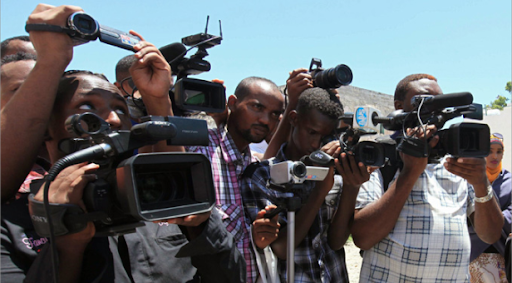ECOWAS Orders Nigeria To Review Broadcasting Laws Gagging Citizens’ Freedom Of Expression
The affected provisions of the law are Articles 3 (1) (1), 3(1) (2), 15(2) (1) of the NBC (the 6th edition) and Article 15 (5) (1) of the Amendments to the Code. The court declared that the articles contravene some international human rights laws.

The ECOWAS Court of Justice has declared that parts of the Nigerian Broadcasting Code violate international human rights obligations. The court, an organ of the Economic Community of West African States, ECOWAS, also ordered the Nigerian government to stop using the laws because they infringe on several citizens’ rights, including the freedom of speech.
In a judgment pronounced on Oct. 23, the court highlighted parts of the Nigerian Broadcasting Code which fail to align with international agreements such as the African Charter on Human and Peoples Rights (ACHPR).
In September 2020, Expression Now Human Rights Initiative (ENHRI), a non-governmental organisation, took the Nigerian government to the ECOWAS Court of Justice for violating some fundamental human rights laws, particularly freedom of expression.
The think tank argued that some of the provisions of the Nigeria Broadcasting Code were restricting citizens’ freedom of expression, referencing some abuses of the laws, including the imposition of a ₦5 million fine on Nigeria Info, a radio station, for ‘inciting public disorder on air’.
The affected provisions of the law are Articles 3 (1) (1), 3(1) (2), 15(2) (1) of the NBC (the 6th edition) and Article 15 (5) (1) of the Amendments to the Code. The court declared that the articles contravene some international human rights laws.
According to a statement from its communications unit, the court has ordered the Nigerian government to stop using the above-stated laws of the Nigerian Broadcasting Code.
“Submit to the court within six (6) months of the date of notification of this judgment, a report on the measures taken to implement the orders set forth herein,” the court said in the statement.
“Consequently, it ordered the Respondent (the Nigeran government) to align Articles 3 (1) (1), 3(1) (2), 15(2) (1) of the Nigeria Broadcasting Code (6th Edition) and Article 15 (5) (1) of the Amendments to the Nigeria Broadcasting Code (6th Edition) with its international obligations.”
Meanwhile, Solomon Okedara, counsel to the think tank, says the judgment was well-considered. He also says it marks the new dawn of media freedom in Nigeria and the rest of the ECOWAS region. He emphasised that journalists and media houses should be free to do their jobs without fear of sanctions, including fines and revocation of broadcasting licenses.
Summary not available.
Support Our Journalism
There are millions of ordinary people affected by conflict in Africa whose stories are missing in the mainstream media. HumAngle is determined to tell those challenging and under-reported stories, hoping that the people impacted by these conflicts will find the safety and security they deserve.
To ensure that we continue to provide public service coverage, we have a small favour to ask you. We want you to be part of our journalistic endeavour by contributing a token to us.
Your donation will further promote a robust, free, and independent media.
Donate HereStay Closer To The Stories That Matter




